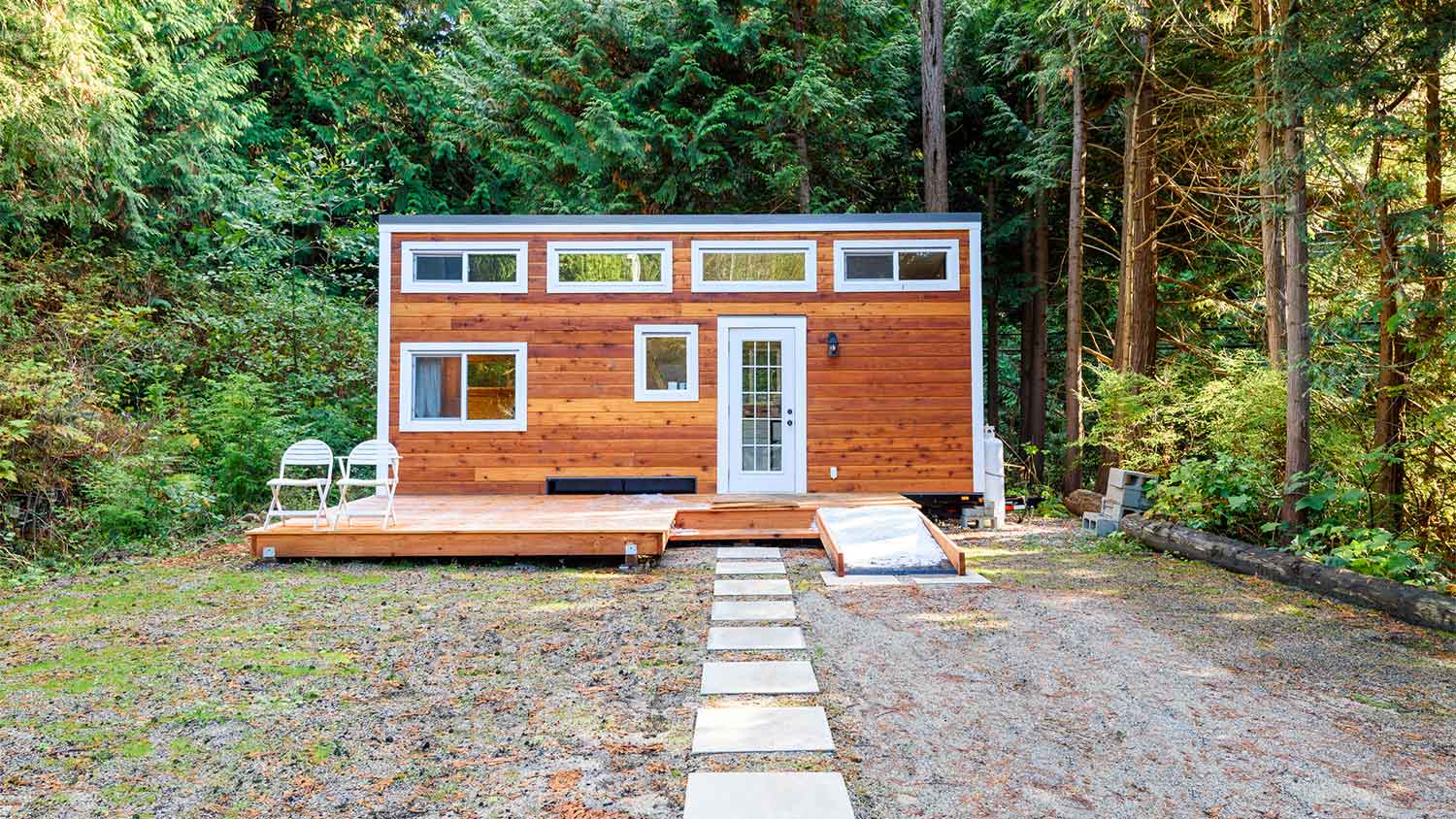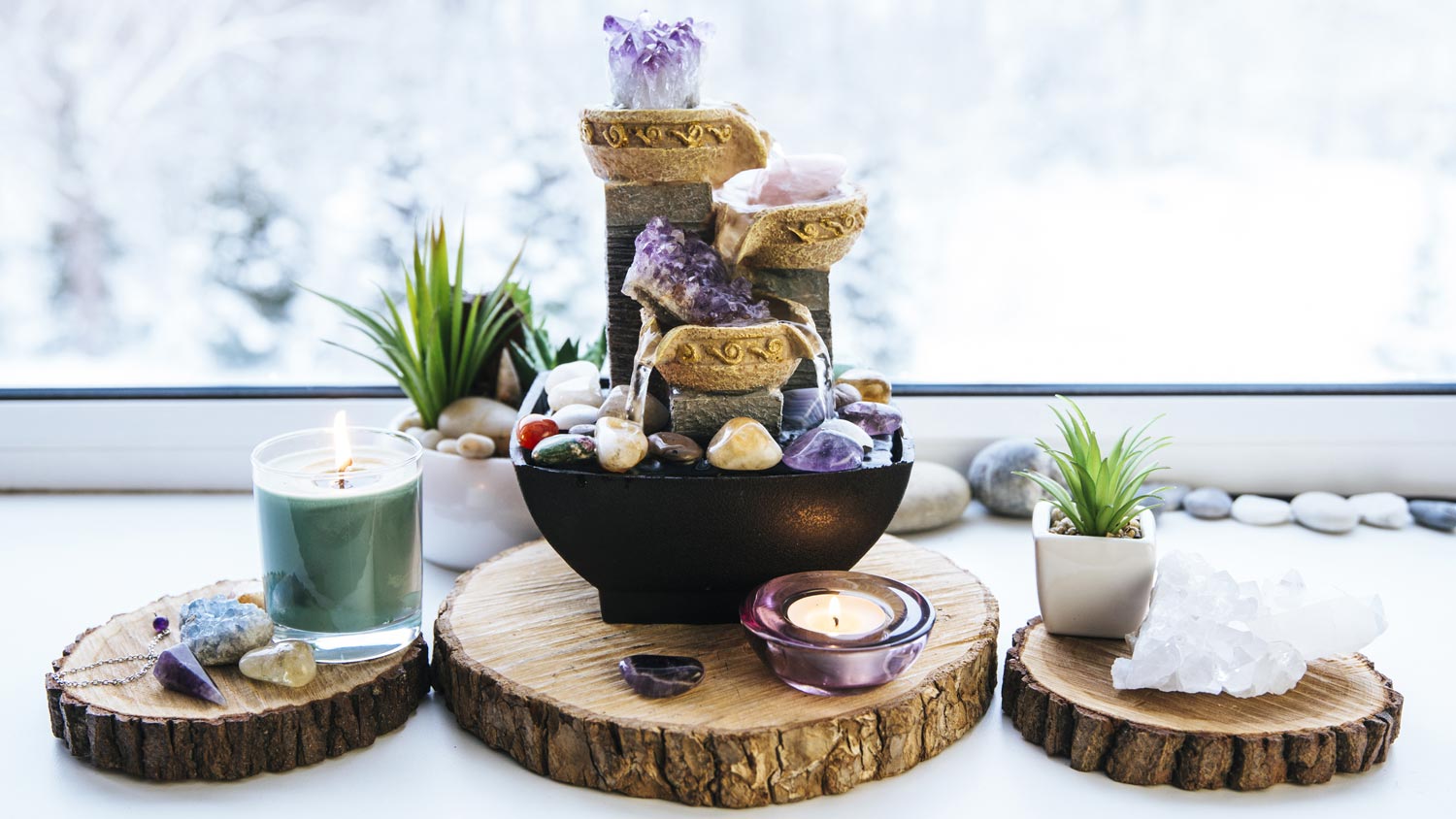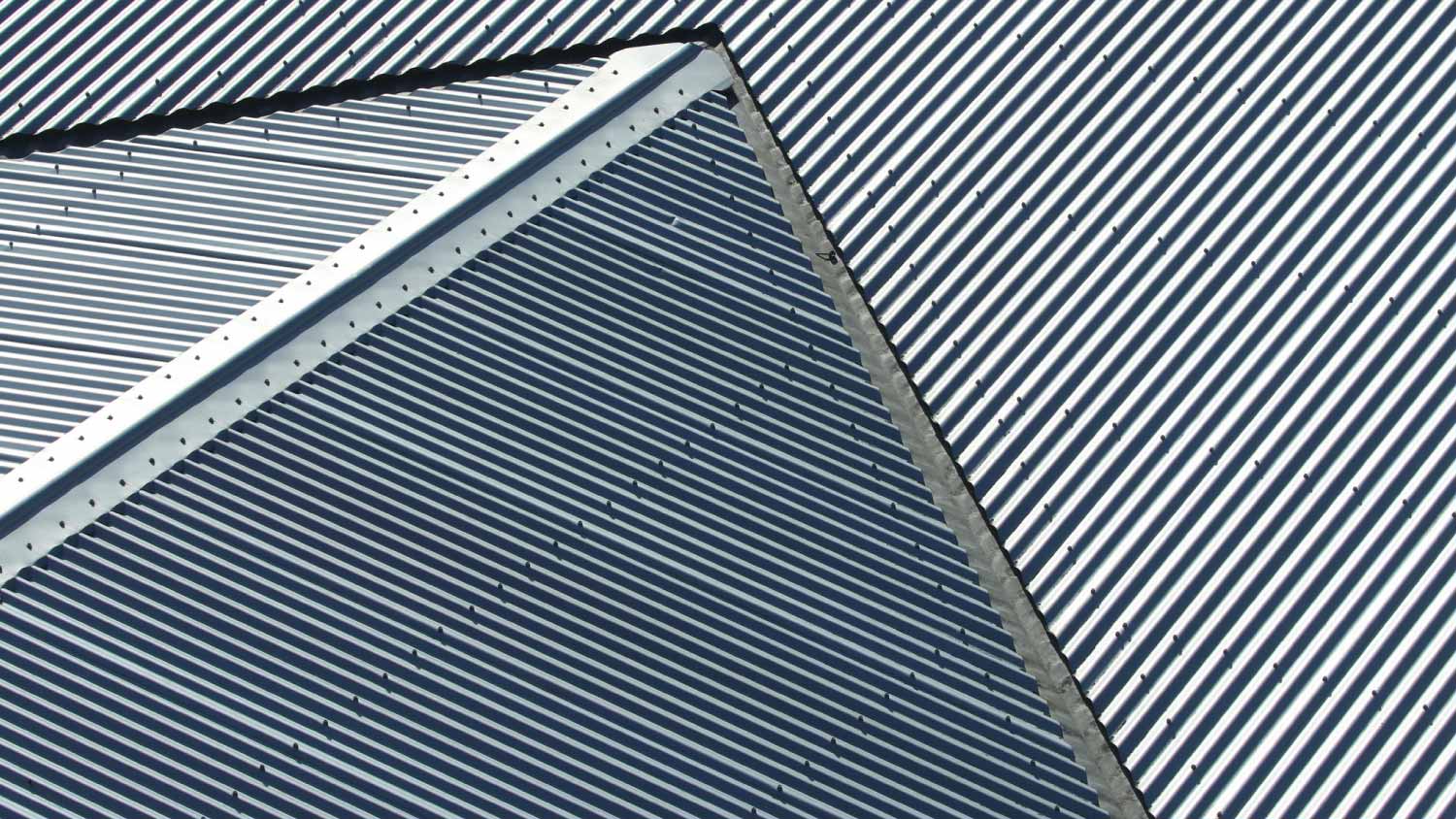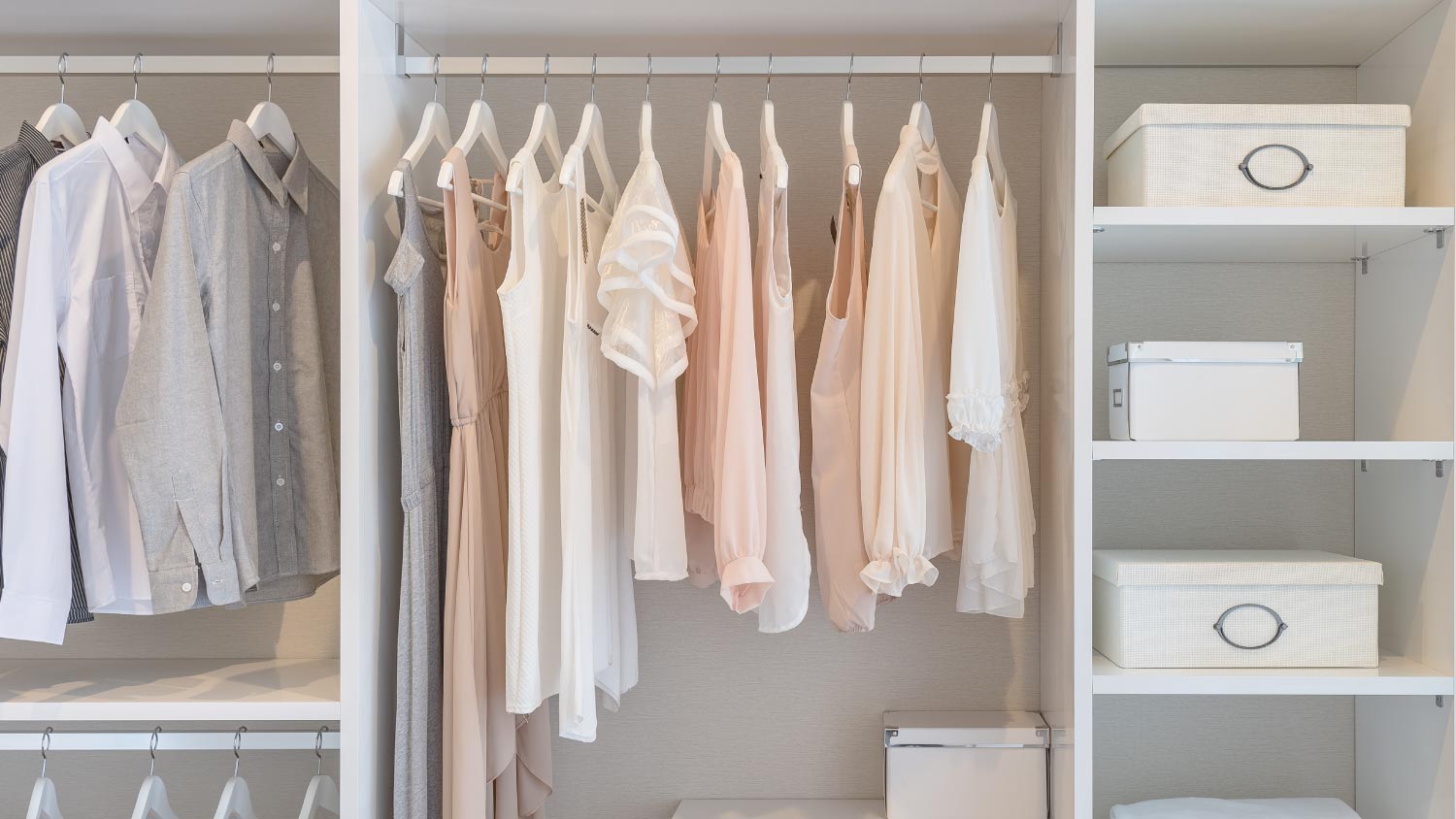
Find out how much it costs to install crown molding by type and size. Use our expert guide to figure out how much crown molding you need, how much crown molding costs near you, and whether you need to hire a pro.
In-law suites provide private space for family members to stay when they visit


Fully equipped and ideal for hosting guests.
Well-suited for work and play spaces as well.
They have many pros, but drawbacks include increased utilities.
In-law suites go by many names. Whether you call them mother-in-law quarters or granny flats, there’s no denying that an in-law suite addition is useful for so many purposes beyond hosting extended family. Use this guide to learn more about what makes in-law quarters special, some of their potential drawbacks, the cost to install them, and more.
In-law suites are additional living areas independent from the main home that typically provide a private place for family members to stay when they visit.
Sometimes, in-law suites are physically separate but located on the same estate; these types of quarters are usually classified as accessory dwelling units (ADUs). Other times they’re incorporated into an existing structure, in the case of an accessory apartment carved out of your living space.
They’re intended to be places where your in-laws or aging-in-place parents can live comfortably for an extended period of time. In most cases, they even have separate entrances for extra privacy—so you don’t have to worry about running into anyone before you’ve had your morning coffee.

Though in-law quarters have many upsides, there are also a couple of downsides you should consider to figure out if it’s the right addition for you.
Hosting guests for longer than a couple of days can be difficult and draining if you’re constantly bumping into each other. In-law suites eliminate this problem by allowing guests to live independently—they can cook, eat, sleep, and bathe without ever disturbing you or your family, using their separate entrance as a means of accessing their private space.
Though in-law suites can be expensive to build, the additional square footage can improve your home’s resale value by up to 30%. That doesn’t include what you can also win back by subletting or renting your home on a short-term rental site.
Just keep in mind that, in many municipalities, you’ll need additional rental permits to profit from your in-law quarters. Rental permits can be expensive, and in some areas, they’re not easy to obtain.
Some in-law suites are well-organized and large enough to comfortably fit guests and your extra possessions. Use a bit of tiny house design inspiration to build a unique home with plenty of storage space and amenities. Doing so improves the utility of your in-law quarters and adds value to your home even when the space isn’t occupied by family members.
Additions like in-law suites have to comply with local building codes, and the time it takes to get approved can range anywhere from a few weeks to many months. Plus, building or renovating another part of your home into an in-law suite can be a costly home project, totaling many thousands of dollars for space that may detract from your living area. For a home addition cost estimate, contact a home addition company near you.
One major downside to in-law suites is that they increase both your energy bills and home maintenance requirements. Unless they’re unoccupied—and even sometimes when they aren’t occupied—you’ll need to pay for additional utilities. You might be able to cover the extra cost for paying guests by including it in their rent, but you may have to take the loss when it comes to family or friends.
In many cases, the upsides and drawbacks of an in-law suite depend on the type of space you’re building.
In-law suites can vary quite a lot depending on where you build them on your property and how you intend to use them. Below are some common features you’ll see in in-law suites if you need some useful home addition ideas.
Separate living quarters for your family and friends aren’t complete without a separate bathroom, which allows your guests to bathe without occupying your own bathroom.
If you plan on your family members staying for short periods of time only, then you could get away with a powder room—usually just a toilet and sink—which is the most affordable option. A half bath—toilet, sink, and shower—or a full bath—toilet, sink, and full bathtub/shower—are better if you plan on having guests for multiple days. If you ever plan on renting your accessory space, then a half or full bath will be necessary.
Much like a bathroom, a kitchenette or even a full kitchen is more or less a requirement if your guests will be staying for long periods. Kitchenettes in guest spaces usually at least include a sink, a mini fridge, a small oven/stove or a microwave, and some counter space for food preparation.
Again, if you plan on renting your apartment or having family members stay for weeks at a time, you’ll probably want to install a full-size kitchen.
The point of in-law quarters is to give guests a private place to sleep, so no space is complete without at least one bedroom. In-law suites in your home usually have one to two bedrooms so as not to detract too much from your own living space. Accessory dwelling units built separately from your home can have as many as you need.
A living room area for relaxing is a great option to give your guests somewhere other than their bedroom to spend time. Depending on your space, the living room space can be set in the same room as the kitchenette.
If you build an ADU or an in-house suite with an entrance into your rear or side yard, you might consider installing a small deck or patio to provide your guests some space to stretch out and enjoy some fresh air. This is an especially nice touch if you plan on renting out the space to paying tenants.
Adding in some dedicated storage space is a great way to get some value for yourself out of your guest quarters, especially if you expect them to remain unoccupied most of the time. You could always remove your stored items and provide that space as storage for your guests when you do have family members staying with you.
There are a handful of other ways to use in-law suites, which make them more valuable to you when they’re not occupied. Keep reading to find out some of the best ideas for taking advantage of the extra space.
Since remote work is here to stay for many professions, having the ideal setup is a must. With an in-law suite, you can create an at-home office that rivals (or surpasses) the one you used to commute to.
Complete with a separate bathroom, a kitchenette for quick coffee and snacks, and an extra space to stretch out or take a power nap when necessary, in-law suites help you avoid the distractions that usually come up at home, like when you’re working from the kitchen table. And, because you have everything you need, you won’t have to go back into your main domain until the end of your workday.
You might be able to use in-law suites to host short- and long-term stays, whether to friends in between permanent living arrangements or tourists passing through your area. Guests will have all the amenities they need to be self-sufficient, and you won’t need to interact except to exchange keys, thanks to a separate entrance.
Keep in mind that renting out space on your property might not be legal in your municipality, and in some areas, you’ll need a rental permit or special short-term rental permit. Some cities have also banned short-term rentals entirely. Be sure to check your local rental laws before attempting to rent out your space.
If you find yourself with an empty in-law suite, feel free to have some fun and dream big! Take advantage of the space by turning it into an at-home movie theater or creating a small pool house set-up.
You could even set up the space as a dedicated play are for kids, which will help keep your main living space clean and tidy.
In-law suites can range wildly in price, usually from around $15,000 to over $125,000, depending on the type, size, and amenities.
The cost to build an in-law suite can be as low as around $15,000 for a small, bare-bones in-law suite for short stays, framed out in your existing living space. If you’re instead planning on building a full-fledged ADU separate from your house that you can rent out to paying tenants as well, you could pay an average of around $125,000, but that price could go well above $200,000 depending on the size, fit, and finish.
At these prices, most homeowners installing in-law suites will finance their home remodel project to make it a more accessible project.
From average costs to expert advice, get all the answers you need to get your job done.

Find out how much it costs to install crown molding by type and size. Use our expert guide to figure out how much crown molding you need, how much crown molding costs near you, and whether you need to hire a pro.

Discover the average feng shui consultant cost, what impacts pricing, and how to save on your consultation.

Discover the average cost of tin ceiling installation, including labor, materials, and key factors that impact your budget. Learn how to save and plan your project today.

Architectural details like wood molding help frame a space and add visual interest. From baseboards and door casing to wainscoting and board-and-batten paneling, read on for a rundown of all the types of trimming for your home.

Discover the cost to install a built-in wardrobe. Learn about average prices, installation factors, and ways to save on your custom storage project.

If you’re getting ready to install some trim or molding inside your home, here are some of the questions you should expect to discuss with a pro.